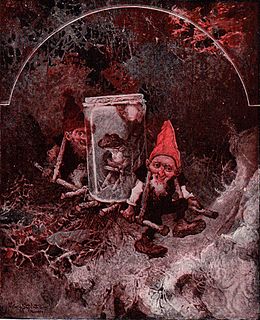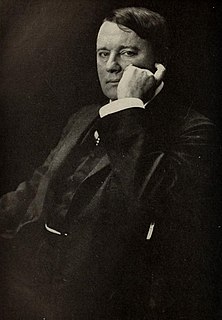
The Encyclopædia Britannica, Eleventh Edition (1910–11) is a 29-volume reference work, an edition of the Encyclopædia Britannica. It was developed during the encyclopaedia's transition from a British to an American publication. Some of its articles were written by the best-known scholars of the time. This edition of the encyclopedia, containing 40,000 entries, is now in the public domain, and many of its articles have been used as a basis for articles in Wikipedia. However, the outdated nature of some of its content makes its use as a source for modern scholarship problematic. Some articles have special value and interest to modern scholars as cultural artifacts of the 19th and early 20th centuries.

Encyclopedia Americana is one of the largest general encyclopedias in the English language. Following the acquisition of Grolier in 2000, the encyclopedia has been produced by Scholastic.

Archibald David Constable was a Scottish publisher, bookseller and stationer.
Funk & Wagnalls was an American publisher known for its reference works, including A Standard Dictionary of the English Language, and the Funk & Wagnalls Standard Encyclopedia.

The Children's Encyclopædia was an encyclopædia originated by Arthur Mee, and published by the Educational Book Company, a subsidiary of Amalgamated Press of London. It was published from 1908 to 1964. Walter M. Jackson's company Grolier acquired the rights to publish it in the U.S. under the name The Book of Knowledge (1910).

Chambers's Encyclopaedia was founded in 1859 by William and Robert Chambers of Edinburgh and became one of the most important English language encyclopaedias of the 19th and 20th centuries, developing a reputation for accuracy and scholarliness that was reflected in other works produced by the Chambers publishing company. The encyclopaedia is no longer produced. A selection of illustrations and woodblocks used to produce the first two editions of the encyclopaedia can be seen on a digital resource hosted on the National Museums Scotland website.

Encyclopædia Britannica, Inc. is a Scottish-founded, now American company best known for publishing the Encyclopædia Britannica, the world's oldest continuously published encyclopedia.

Chandler Belden Beach (1839–1928) was an American entrepreneur and encyclopedist. He founded the publishing company C. B. Beach & Company, later renamed F. E. Compton & Co. after his associate Frank Compton took it over,
Frank Elbert Compton was a publisher of encyclopedias and other reference works, most notably Compton's Pictured Encyclopedia from 1922, later named Compton's Encyclopedia.
Compton's Encyclopedia and Fact-Index is a home and school encyclopedia first published in 1922 as Compton's Pictured Encyclopedia. The word "Pictured" was removed from the title with the 1968 edition. The encyclopedia is now advertised as Compton's by Britannica.

Charles Frederic Moberly Bell was a prominent British journalist and newspaper editor during the late 19th and early 20th centuries.

George Robertson was a Scottish-Australian bookseller and publisher, who founded the publishing division of Angus & Robertson.
Franklin Henry Hooper was a U.S. editor. His older brother Horace Everett Hooper was publisher of the Encyclopædia Britannica, and Franklin was an editor there. From 1932 to 1938 he was editor-in-chief.

The Encyclopædia Britannica has been published continuously since 1768, appearing in fifteen official editions. Several editions have been amended with multi-volume "supplements", consisted of previous editions with added supplements or undergone drastic re-organizations (15th). In recent years, digital versions of the Britannica have been developed, both online and on optical media. Since the early 1930s, the Britannica has developed several "spin-off" products to leverage its reputation as a reliable reference work and educational tool.

Dobson's Encyclopædia was the first encyclopedia issued in the newly independent United States of America, published by Thomas Dobson from 1789–1798. Encyclopædia was the full title of the work, with Dobson's name at the bottom of the title page.

Alfred Charles William Harmsworth, 1st Viscount Northcliffe was a British newspaper and publishing magnate. As owner of the Daily Mail and the Daily Mirror, he was an early developer of popular journalism, and he exercised vast influence over British popular opinion during the Edwardian era. Lord Beaverbrook said he was "the greatest figure who ever strode down Fleet Street." About the beginning of the 20th century there were increasing attempts to develop popular journalism intended for the working class and tending to emphasize sensational topics. Harmsworth was the main innovator. P. P. Catterall and Colin Seymour-Ure conclude that:
More than anyone [he] ... shaped the modern press. Developments he introduced or harnessed remain central: broad contents, exploitation of advertising revenue to subsidize prices, aggressive marketing, subordinate regional markets, independence from party control.



















